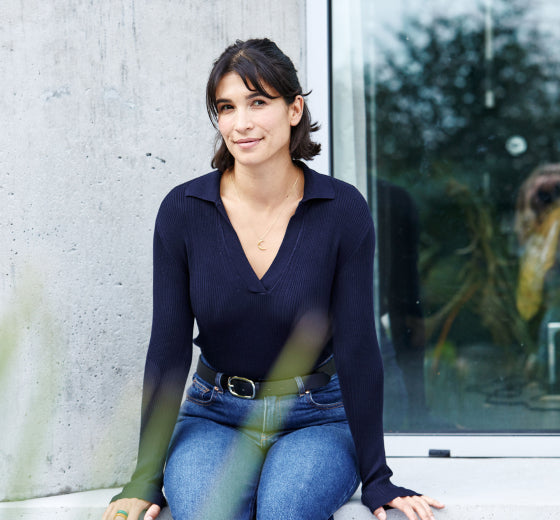
An Introduction to Intuitive Wellness
7 Min read
Ask any nutritionist worth their stripes a health-based question like; “should I be taking Ashwagandha?”, ‘Should I be doing intermittent fasting?’,"Is dairy bad for you?” And they’ll most likely answer - “it depends”.
Now we don’t mean to be vague or annoying - but the wonderful thing about each and every one of us, is that we’re all so unique and so are our health needs. We each carry a health fingerprint - one unlike anyone else, imprinted with our past experiences, genetics, culture, ethics and nutritional needs - which makes it complicated to say the least.
So, as we are all so different, how are we each supposed to navigate the huge topic of wellness? How can we possibly know what is right for ourselves?
Do you have Trend Fatigue?
When it comes to key messages in the world of nutrition and wellness, extremes tend to dominate.
2022 saw a huge rise in wellness trends thanks to Reels and Tiktok. Trends aren’t always bad. They can guide us to great hacks and a better understanding of our bodies, but sometimes it can leave us with ‘trend fatigue’. We wind up trying too many quick fixes and layering up too many health habits; all of which end up mashing up against what our bodies might actually be asking us for.
What works for some…
Keto will work for some people. Some people may feel great on a plant based diet. HIIT classes can do wonders for some of us. But (I’ll say it again) we are all so different. The opposite will also be true. Keto will be a rough ride for some. Some following a plant-based diet will end up with nutrient depletions. HIIT could be the straw that breaks the camel's back for that one person.
Diets and trends of course can have their place as a guide. In our quest for good health, many people find it easier to focus on regiments for the body, because the results are more tangible. I’ve been there too.
Track back to my pre-nutritionist days, I took care of my body “by the numbers.” Every day, I walked a certain number of steps or tried to get to the gym and ‘burn X amount of calories’, no matter how sick, sore or tired I was. I worked a certain number of hours guided by the clock on the wall, often going without sleep in order to finish my work no matter how my body begged for rest. Never mind that my natural productivity drive starts at 5am and drifts off by the afternoon - I stuck to the classic working day and bathed in the blue light of screens deep into the evening. I ate based on counting and tracking calories, rather than thinking of nutrients, enjoyment and nourishment. I’d eat by that damn clock too - overriding my hunger pangs and low energy because the clock told me it wasn’t ‘lunch time’ yet.
On top of this wearable devices are also booming, and set to continue to do so, telling us when to move, when to sleep, when to take a moment of mindfulness, and how our body is working, number by number. Whilst these can be helpful in navigating our own personal health as a guide, over-use of them is making us override an incredible skill we all have inbuilt within us.

Are you listening?
The issue with trends, diets, wearables and number-based nutrition is that they lead us down a path of disconnect. They all somewhat mask an incredibly important tool. We forget our inbuilt innate knowledge of listening to our bodies.
Whether you choose to listen or not, your body is sending you signals all the time, speaking to you - telling you what it needs and how to look after it. Where the magic lies is when we understand the physical feelings and intuitive conversation our body is having with us.
Tuning into these messages takes some practice. The messages can be loud - such as pain, or very subtle, more of a whisper, such as feeling off kilter or even a ‘gut’ feeling. How many of us override these signals? I know I’ve continued to train with a dodgy knee or continued to eat a food I know will bloat me.
Now, there are a few things that the majority of us will do well with consistently and these are based around the blueprint for health our ancestors laid out for us - light, movement, rest and nourishment. There’s no doubt that we all should be working on getting these foundations right first. Some things also just work better on the daily(ish); meditation, using whole foods, drinking enough water, even certain supplements and nootropics work best when taken consistently (collagen anyone?). Other times though, we need to turn the dial, adjust what we are doing day in, day out depending on what is happening in that moment or in the life stage we’re at.
Part of understanding this is uncoupling the idea that aesthetics equals health. Signs of vitality go way beyond a dress size. They include good sleep, balanced energy levels, good mental health, ease of movement, glowing skin, great digestion, and a bolstered immune system to name a few. If anything, these are helpful ‘measurements’ and ways to track your health.
Who we are and what we need changes on a daily, weekly, yearly basis. Acknowledging this is part of having a good relationship with what our body needs. But then our approach needs a little tinkering based upon what life throws at us, what our dynamic, incredible body is in need of.
You might love intermittent fasting - and yet it isn’t going to be the right thing to do EVERY day, especially if you are highly stressed or at certain points in a woman's menstrual cycle.
Sleep is one of the most important pillars of wellness, right? And yet there may be times you forgo an early night for some much needed connection and socialising.
So you’ve got enough protein, organic veggies and healthy fats on your plate one meal and then the next you enjoy some birthday cake to celebrate a colleague's 40th.
We cannot hold on too tightly to healthy habits that we don’t allow life to happen. Living a healthy life is a way to live life, more.
Tapping into your intuition
Intuitive wellness is where we put together the skill of listening to our body with responding using different nutrients, supplements and lifestyle practices. By tuning into those body-messages we receive right from the moment we wake, we can start to navigate our personalised health needs.
Asking internal questions such as ‘did you get enough sleep?’, ‘How full is your stress bucket today?’ - we can then think about how to adjust what we do; “I feel quite stressed today, I think I better have breakfast instead of intermittent fasting and do yoga instead of spin’. Or ‘I didn’t sleep very well, maybe I ate dinner too late last night - I’ll try eat earlier today” or ‘it’s getting close to my period, let’s get in some gentle carbs and extra magnesium’ or ‘I’m feeling a little run down, I better add some ginger root to my morning drink”.

How to hone your skills
Listening to your body and then knowing how to support it takes time, understanding and a little learning. There are ways we can really hone our listening skills and start to build our toolbox
- Start to take on practices which promote ‘feeling’ over ‘doing’. Yoga is a great example of this where it’s not just about performing the perfect yoga asanas or poses, but instead feeling what your body is doing, making small adjustments, feeling into when to challenge it and when it needs to rest.
- Slow down when it comes to the key health fundamentals such as eating. Really listen to your hunger cues, listen to what your cravings are and what they are telling you about your mental and physical state. Listen to how you feel about the meal you’re eating. Are you satisfied? Are you hungry an hour after? Are you having any physical symptoms? All these questions can lead you to understand which foods work for you and which ones you may need to address but the key here is to ask yourself these questions without judgement, without berating yourself but with an open inquisitive mindset.
- Observe how to talk to your body and about yourself. Observe how you touch or treat your body - do you prod and poke at it? To quote the words of Dr Will Cole - you can’t heal a body you hate. Often this is one of the most difficult areas to tackle but ultimately will be the biggest impact in terms of your health. After all, our bodies are the only home we’ll have for our whole lives. Start to listen to it.
Over the next few weeks, with the help of our Brave wellness experts you’ll find out how to listen to your body and learn different ideas to use when you need to course correct. Stay tuned.
Jo x
